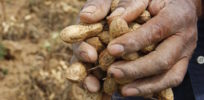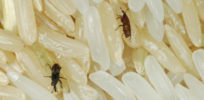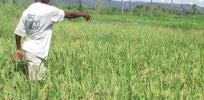Plant Biotechnology

Viewpoint: Here’s why we have to harness gene editing to promote global food security
There is an urgent need to develop crop varieties which tolerate adverse growth conditions while requiring fewer inputs. Plant breeding ...

Viewpoint: Growing GMO crops provides 4 major health benefits you probably didn’t know about
While the application of agricultural chemicals is highly mechanized in industrial countries, the same cannot be said for developing countries, ...

CRISPR gene editing protects apples from orchard-destroying fire blight disease
The bacterium Erwinia amylovora, the causal agent of fire blight disease in apple, triggers its infection through the DspA/E effector ...

Toxin-neutralizing GMO peanuts could solve serious food safety issue in Africa and Asia
Aflatoxin contamination in peanuts poses major challenges for vulnerable populations of sub-Saharan Africa and South Asia. Developing peanut varieties to ...

Studies claiming serious GMO crop risks published mostly in low quality journals and riddled with conflicts of interest, bad science
[Editor's note: Miguel Sanchez is Executive Director of ChileBio. Wayne Parrott is a professor of Crop Science at the University of ...

Non-GMO breeding changes the makeup of crops more than genetic engineering
The composition of GM breeding stacks was more similar to the composition of iso-hybrids than was the composition of nonGM ...

Insect-resistant GMO Bt rice poses ‘negligible risks’ to non-target species, study finds
Transgenic Bt rice expressing the insecticidal proteins derived from Bacillus thuringiensis Berliner (Bt) have been developed since 1989. Their ecological risks ...

Nitrogen-efficient GMO rice uses less fertilizer, improves yields
According to FAO projections, by 2035, a 26% increase in rice production will be necessary to feed the growing population ...
Chinese Bt rice may not go commercial due to ‘societal pressures,’ not safety concerns
The GLP aggregated and excerpted this blog/article to reflect the diversity of news, opinion and analysis. Multiple lines of transgenic ...
New genetically engineered peanuts resistant to pests, diseases
Peanut (Arachis hypogaea L.) is a major species of the family, Leguminosae, and economically important not only for vegetable oil but ...

